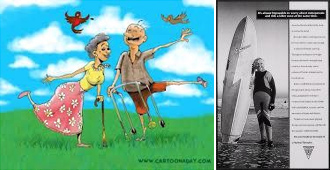Arthritis / Osteoporosis Management

These are 2 different conditions that need to be addressed and treated accordingly.
Other similar and related conditions:
- Fibromyalgia
- Chronic Myofascial Pain
- Degenerative vs. Rhematoid Arthritis
- Weakness associated with muscle wasting, lack of movement, joint instability
- Soft tissue pain
- Treatment is comprehensive, including soft tissue work, stretching, and strengthening program, taking into consideration bone density and joint pain
1. In primary prevention, work with the healthy person:
- Address exercise training for weight issues, flexibility, proper joint motion
- Prevent onset of degenerative joint problems.
- Prevent muscle and joint overuse in daily life and at the workplace.
- Proper weight loss,
- Strength and flexibility training,
- Therapeutic massage and soft tissue work to prevent pain onset or minimize pain
- Modify work / life habits, posture, body mechanics
- Exercise program for flexibility, strengthening, maintaining proper weight
- Massage and soft tissue work to minimize and decrease pain, increase circulation
- Joint motion and ligament / tendon cross friction massage
- Advisement on adaptive equipment: thumb, wrist, knee, ankle splints; neck support; foot support including shoes and orthotics; modified tools
- Body mechanics / Postural changes: proper usage of the spine, legs, arms, shoulders, neck; safe transitioning
- Gait training: changing walking and standing habits and posture; help with getting the proper walking aid: cane, walkers, wheelchair to take load off painful joints.
- Sleeping positioning with pillows, keeping joints well circulated during sleep
- Use of therapeutic modalities: heating ointment, herbal compresses, ice, electrical stimulation…
- Multi-facet considerations: young children, growth pattern, older age- osteoporosis, cardiac tolerance, presence of other disease processes, concurrent medical treatment and medications, life habits and psycho-social supports
Some Possible Exercises for Osteoporosis and Arthritis are below, but first, come in to discuss with us about your specific condition(s), because there might be other factors to consider before you start your exericse program. The rule of thumb is to exercise only within the painfree range of motion. Listen to your body and be sure you are not forcing yourself beyond your own level of comfort.
Osteoporosis- Weight shifting / one-leg shift or stand
- Walking
- Bouncing
- Up / down steps
- Up / down stairs
- Light weigh lifting: carry quart of milk / juice, use back-packs
- Jogging / Running
- Water exercises with resistance
- Stretching
- Reaching
- Swimming / water exercises- no or minimum resistance
- Bicycle riding- if joints don't hurt- also adjust bike correctly
- Stationary bike- if joints don't hurt
- Pulling / Pushing to comfort range, low weight
- Reaching
- Weight shifting
- Standing
- Standing, tip-toeing
- Light bouncing
- Beginning Sit-to-stand
- Pulling / Pushing against wall







